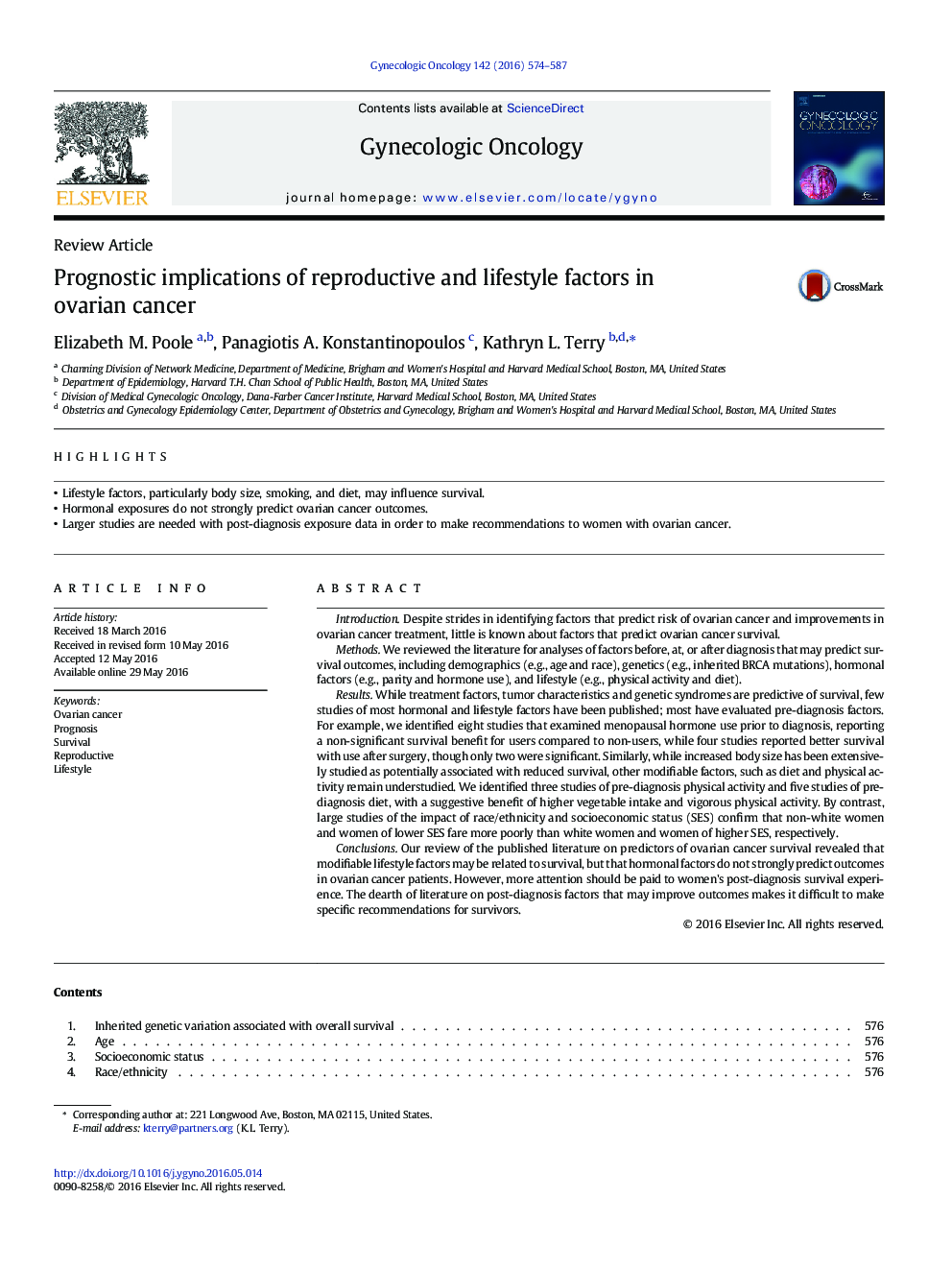| کد مقاله | کد نشریه | سال انتشار | مقاله انگلیسی | نسخه تمام متن |
|---|---|---|---|---|
| 6183017 | 1254057 | 2016 | 14 صفحه PDF | دانلود رایگان |
- Lifestyle factors, particularly body size, smoking, and diet, may influence survival.
- Hormonal exposures do not strongly predict ovarian cancer outcomes.
- Larger studies are needed with post-diagnosis exposure data in order to make recommendations to women with ovarian cancer.
IntroductionDespite strides in identifying factors that predict risk of ovarian cancer and improvements in ovarian cancer treatment, little is known about factors that predict ovarian cancer survival.MethodsWe reviewed the literature for analyses of factors before, at, or after diagnosis that may predict survival outcomes, including demographics (e.g., age and race), genetics (e.g., inherited BRCA mutations), hormonal factors (e.g., parity and hormone use), and lifestyle (e.g., physical activity and diet).ResultsWhile treatment factors, tumor characteristics and genetic syndromes are predictive of survival, few studies of most hormonal and lifestyle factors have been published; most have evaluated pre-diagnosis factors. For example, we identified eight studies that examined menopausal hormone use prior to diagnosis, reporting a non-significant survival benefit for users compared to non-users, while four studies reported better survival with use after surgery, though only two were significant. Similarly, while increased body size has been extensively studied as potentially associated with reduced survival, other modifiable factors, such as diet and physical activity remain understudied. We identified three studies of pre-diagnosis physical activity and five studies of pre-diagnosis diet, with a suggestive benefit of higher vegetable intake and vigorous physical activity. By contrast, large studies of the impact of race/ethnicity and socioeconomic status (SES) confirm that non-white women and women of lower SES fare more poorly than white women and women of higher SES, respectively.ConclusionsOur review of the published literature on predictors of ovarian cancer survival revealed that modifiable lifestyle factors may be related to survival, but that hormonal factors do not strongly predict outcomes in ovarian cancer patients. However, more attention should be paid to women's post-diagnosis survival experience. The dearth of literature on post-diagnosis factors that may improve outcomes makes it difficult to make specific recommendations for survivors.
Journal: Gynecologic Oncology - Volume 142, Issue 3, September 2016, Pages 574-587
